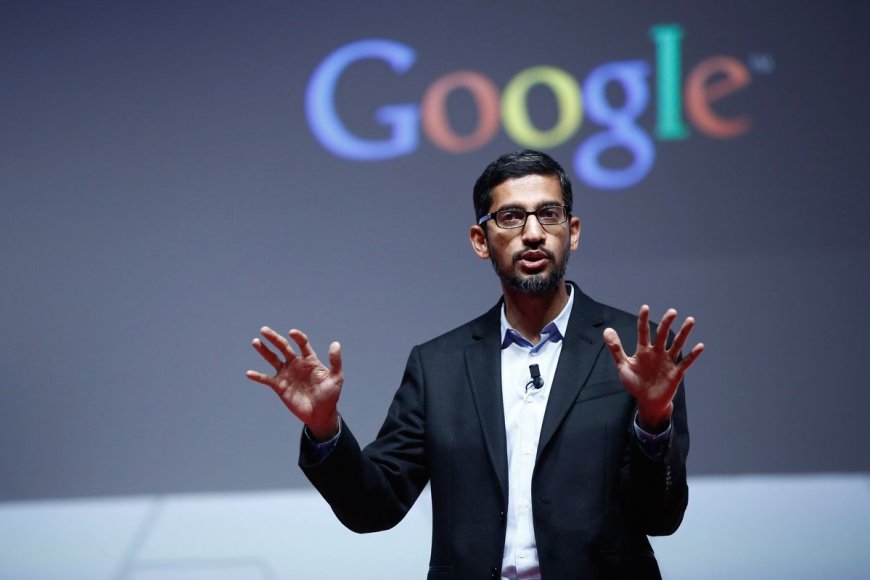Sundar Pichai Reveals New Interview Process at Google in AI Era: How Artificial Intelligence is Reshaping Hiring and the Future of Work
Sundar Pichai shares Google’s AI-driven interview upgrades, ensuring smarter, fairer hiring for coding, engineering, and future tech jobs.

In a rapidly evolving digital age, Google CEO Sundar Pichai recently revealed that the company is revamping its hiring and interview process to adapt to the AI-driven era. This change reflects the growing importance of artificial intelligence in not only building technology but also transforming the way candidates are assessed for roles, especially in fields like engineering, programming, and product development.
Introduction and Background
For decades, Google has been known for its rigorous and innovative hiring process. Candidates have faced challenging coding interviews, problem-solving tasks, and cultural fit assessments. However, with AI now deeply embedded into everyday operations, Google aims to leverage advanced tools to make hiring smarter, faster, and more relevant to modern skill demands.
How AI is Changing Hiring
Artificial intelligence allows recruiters and hiring managers to analyze a candidate’s coding skills, problem-solving patterns, and communication abilities in real time. AI-driven tools can evaluate large volumes of applications, identify the best-fit candidates, and simulate problem-solving environments where engineers can demonstrate real-world skills. This significantly reduces human bias and streamlines the process.
For programming and engineering jobs, AI can generate custom challenges, evaluate code quality, and even provide predictive analytics about a candidate’s potential performance. Pichai emphasized that the goal is not to replace human judgment but to enhance it with data-driven insights.
What AI Can Do in Recruitment
-
Automated screening: Shortlisting the best candidates quickly.
-
Skill assessment: Analyzing coding quality, efficiency, and creativity.
-
Behavioral analysis: Understanding communication and collaboration styles.
-
Bias reduction: Ensuring fairer hiring by focusing on skills and performance.
-
Scalability: Handling thousands of applications seamlessly.
Future Implications and Knowledge Factors
This shift suggests that the future of recruitment will be deeply AI-powered. For employees and job seekers, it means adaptability will be key. Candidates must not only master technical skills but also demonstrate creativity, problem-solving, and adaptability to AI-driven systems.
Employee Reactions and Future Jobs
While some employees may fear over-reliance on technology, many see AI as a way to reduce unnecessary hurdles and ensure fairness. For the job market, this evolution could mean fewer repetitive interviews and more emphasis on practical, hands-on skills. However, it also demands that professionals stay updated, as the expectations of AI-driven assessments may be higher than traditional evaluations.
Significance of This Shift
This move reflects a global trend—companies are increasingly using AI not just to develop products but also to redefine workplace operations. It shows how crucial AI has become in shaping the workforce of the future.
Advantages
-
Faster and fairer recruitment
-
Reduced human bias in hiring
-
More accurate skill-based assessments
-
Improved candidate experience
Disadvantages
-
Risk of over-reliance on AI judgment
-
Concerns about privacy and data handling
-
Possible undervaluing of human intuition and creativity
-
Anxiety among candidates unfamiliar with AI systems
Final Thoughts and Conclusion
Google’s adoption of an AI-driven interview process marks a historic shift in how talent is evaluated in the digital era. As Sundar Pichai highlighted, the company is ensuring that interviews remain effective, fair, and reflective of future needs. The integration of AI in hiring is not just about efficiency—it’s about reshaping the very definition of talent and capability in a world increasingly run by technology.
The future of jobs will belong to those who can blend technical excellence with adaptability, embracing AI as a collaborator rather than a competitor. As hiring evolves, so too must the mindset of job seekers, ensuring they are ready for a workplace where human intelligence and artificial intelligence go hand in hand.

 Ellofacts
Ellofacts 





